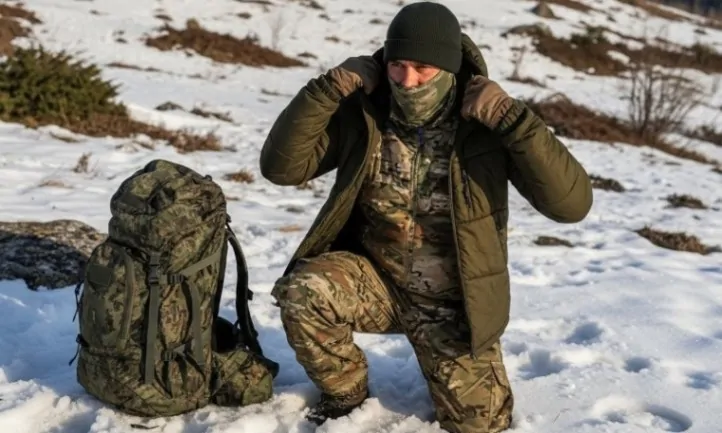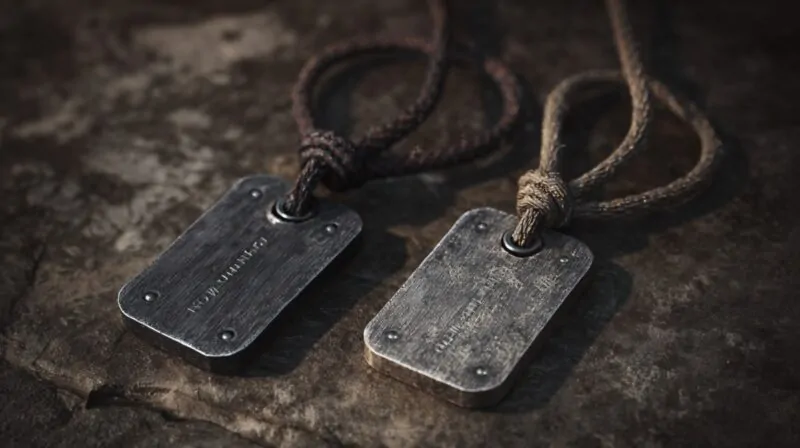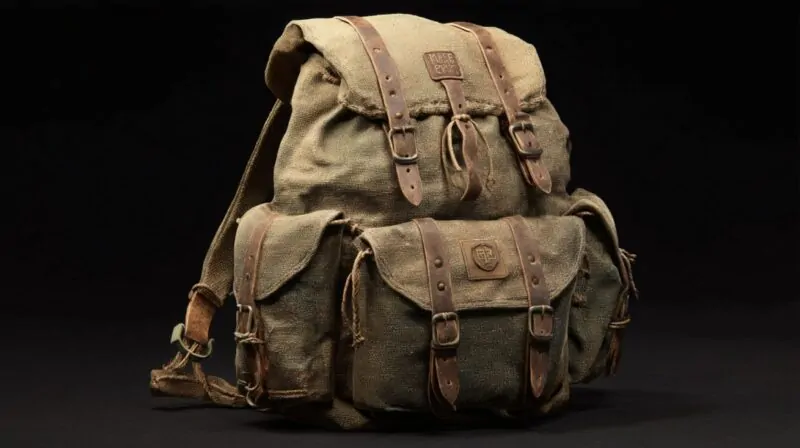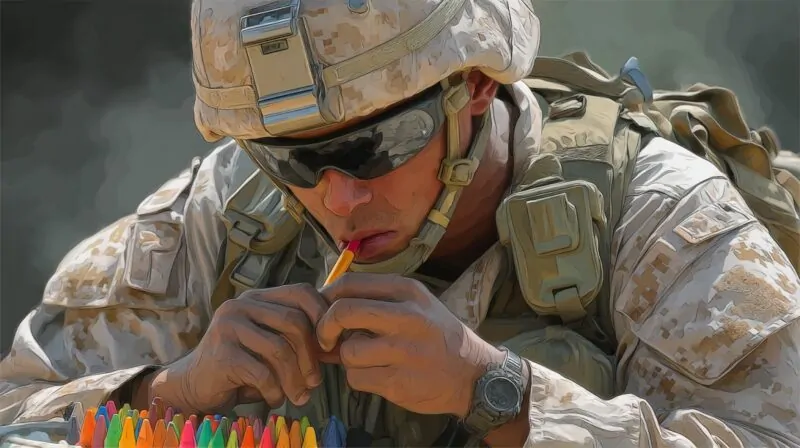Stolen valor is when someone lies about serving in the military or exaggerates their service to get attention, money, or praise. It’s not new. But it’s growing fast online, where people can fake almost anything and build a following overnight.
From fake medals to made-up war stories, this kind of deception hurts real veterans. It also chips away at trust. When everyone becomes a “hero” online, the meaning of real service gets lost.
Let’s break down what stolen valor looks like today, why it’s spreading, and what we can do about it.
Table of Contents
ToggleWhat Stolen Valor Actually Is
Impersonating military service isn’t just about putting on a camouflage jacket. It cuts much deeper than that.
Stolen valor refers to false claims about service in the armed forces, claims made to manipulate, deceive, or benefit from unearned recognition.
These falsehoods may range from embellishing a minor detail to completely fabricating elite-level military careers.
Some people lie about serving in the military to gain admiration or sympathy. Others seek perks like discounts or free drinks. It’s a deliberate deception.
- Saying they fought in combat when they did not
- Claiming awards or medals they never earned
- Inventing entire special operations careers
These lies might win them admiration, handouts, or credibility. But it’s still lying, and those lies carry consequences.
In response, the U.S. passed the Stolen Valor Act of 2013, which makes it a federal crime to benefit financially from false claims of military honors.
Though helpful, the law hasn’t solved the problem, especially in the age of social media.
Why It’s Getting Worse Online
Technology has made impersonation easier than ever.
A person no longer needs to face anyone in real life to spin a compelling war story, they just need a phone and a little imagination.
Social platforms have become fertile ground for stolen valor. People can build entire fake identities, complete with backstories, uniforms, and “proof” that looks authentic to the untrained eye.
- Photos or videos in borrowed or fake uniforms
- Military lingo used to sound credible
- Fake DD-214 discharge papers circulated as “proof”
- Viral emotional videos with inconsistent timelines
One example in 2022 involved a TikTok user posing as a wounded veteran. His inspirational content racked up millions of likes.
But veterans spotted errors in his story and uniform and exposed him as a fraud.
These hoaxes often go viral before anyone checks the facts. By the time they’re debunked, the damage has already been done.
It Hurts Real Veterans

Military service is grueling, demanding, and often traumatic. When someone fakes that experience, it doesn’t just hurt public trust; it dishonors those who genuinely lived it.
Veterans sacrifice years of their lives, often under brutal conditions. When frauds hijack that identity, it damages credibility across the board.
Real service members may even be forced to defend their own backgrounds.
- Dilutes recognition for those who served
- Encourages skepticism toward genuine veterans
- Causes emotional distress and frustration
- Makes some veterans hesitant to discuss their past
One former Marine shared: “I spent months recovering after Afghanistan. Then I see some guy wearing medals he can’t even name. And he’s getting free drinks for it. It makes you feel invisible.”
Once trust is lost, everyone suffers, especially those who did everything right.
It’s Not Just Harmless Lies
While some people assume that lying about military service is just pathetic or sad, the consequences can be much worse.
Stolen valor often escalates into full-blown fraud.
When false claims become a vehicle for personal gain, they veer into criminal territory.
- Claiming military discounts at restaurants and stores
- Applying for Veterans Affairs (VA) benefits
- Getting hired for veteran-preference jobs
- Running fraudulent fundraisers like GoFundMe
In 2021, a man in Florida pretended to be a Navy SEAL and scammed over $50,000 in donations.
None of that money went to actual veterans, it lined his pockets.
These aren’t harmless lies. They siphon off resources meant for those who earned them.
@soldiersolutions Even though stolen valor is not a crime, it should be!! this is the first and only time i’m going to speak on this #military #family #respect #honor #stolenvalor ♬ original sound – SoldierSolutions
What the Data Shows
The numbers reveal a problem that’s not only persistent but growing. Stolen valor cases aren’t flukes; they’re part of a disturbing trend.
According to the Department of Veterans Affairs, over 300 cases of stolen valor were investigated in 2022, more than double the count from five years prior.
- Most cases involved fake medals or service records
- About 30% included financial fraud
- Many more likely go unreported
- Reputational damage lingers online even after exposure
According to erase.com, stolen valor incidents have become a growing concern in online reputation cases.
People who lie about their service often face public backlash. But the internet doesn’t always forget. Even after the truth comes out, the content spreads fast and sticks around.
How to Spot Stolen Valor
Most people don’t know what to look for in military attire or language, which makes them easy targets.
However, there are clear warning signs to be aware of.
Knowing what to watch for can help prevent getting fooled.
- Incorrect or mixed military insignia
- Uniforms that don’t fit or match the claimed branch
- Claims of classified missions or secret units
- Lack of knowledge about basic military structure
- Dramatic fundraising campaigns with no independent verification
There are also legitimate services like FOIA.gov or military record lookup tools to verify service history. Always follow legal and ethical guidelines when using them.
What You Can Do
Spotting a fake is only part of the solution. Responding appropriately matters just as much. Confrontation isn’t always the best option,but neither is silence.
If someone’s claims feel off, start by asking polite, informed questions. Veterans won’t flinch. Impostors usually will.
- Ask respectful questions about their service
- Report the behavior to law enforcement if it involves money or benefits
- Use platform reporting tools on TikTok, Instagram, or YouTube
- Support veterans whose names or identities have been misused
In one case, a veteran had to hire a reputation repair firm because someone used his name in a fake account that raked in donations.
If you witness stolen valor, your voice matters, especially when it helps protect the truth.
@resurgent_harry THIS IS WILD! #usmilitary #coastguard #navy #marines #army #stolenvalor #military ♬ original sound – Harry | Fitness & Travel🌍🇬🇧
Why It Still Matters
Military service is a serious thing. It’s hard. It changes people. And it deserves to be respected.
When fake veterans take over the story, it hurts everyone. It confuses the public. It waters down what service means. And it disrespects the people who gave everything.
But we don’t have to let that happen. By staying aware, speaking up, and protecting the truth, we keep that trust alive.
Final Thought
Stolen valor is more than just lies. It’s damage to the trust we have in each other. Online, it spreads fast. But with the right tools and awareness, we can call it out and stop it from doing more harm.
Respect the truth. Respect the people who lived it. And always ask before you believe the story.
Related Posts:
- Common Boot Camp Myths - Why You Shouldn't Trust…
- Inside the Service Academy Summer Programs: What You…
- When Were Dog Tags Invented and Why Soldiers Started…
- Why do Immigrants Come to the United States?
- 5 Reasons Why Military Recruitment is Struggling in…
- Why the RQ-4 Global Hawk Remains Vital for the U.S. Military







